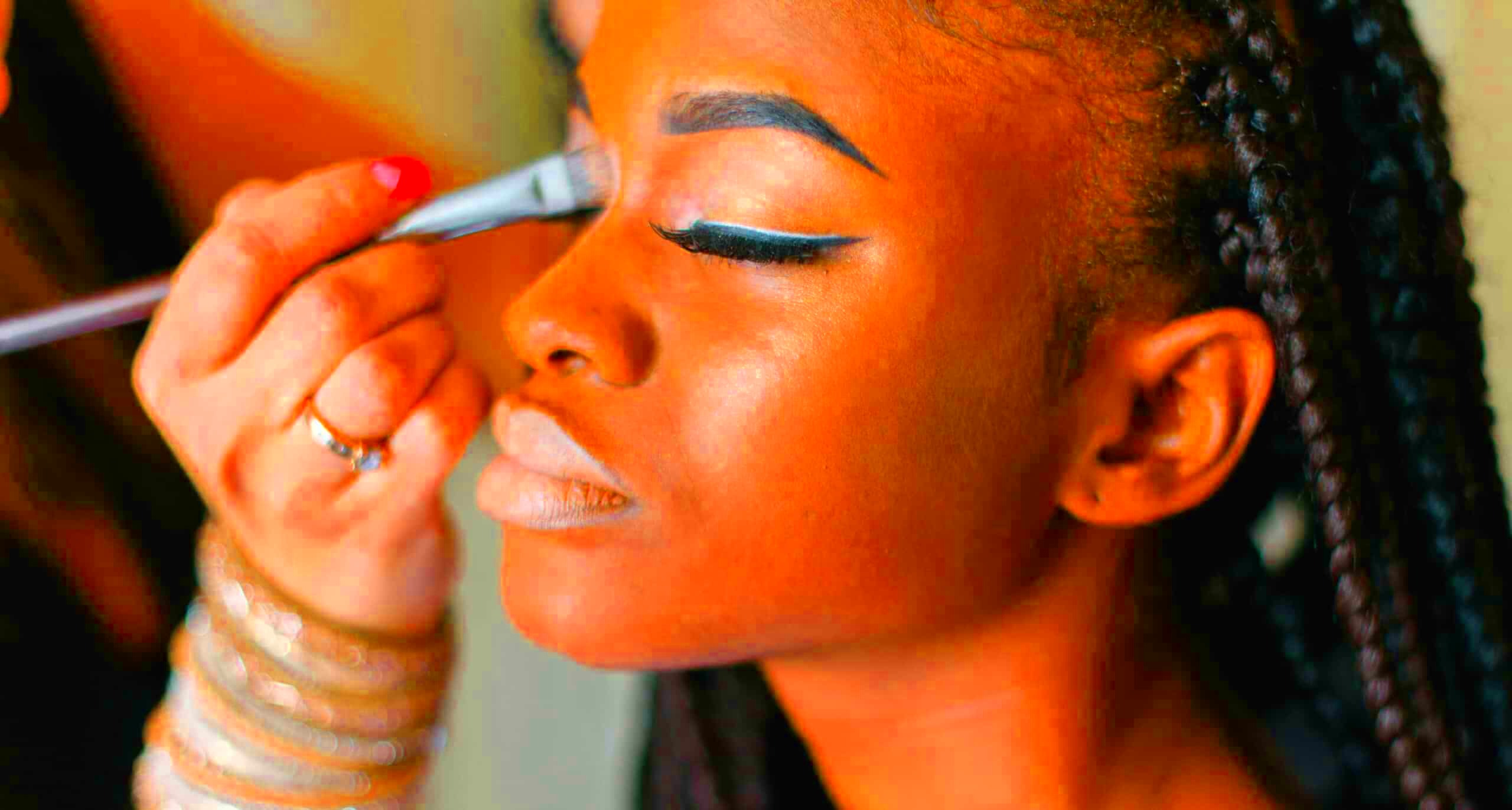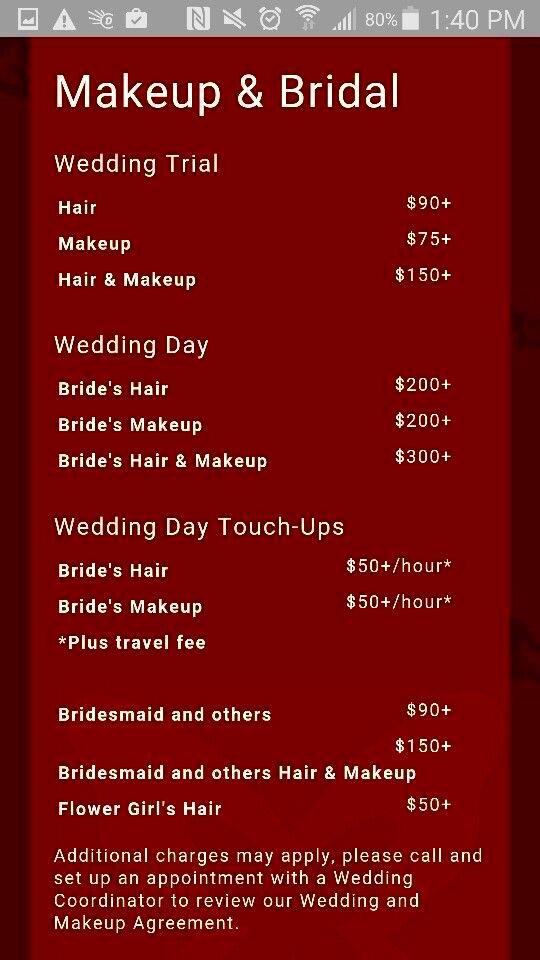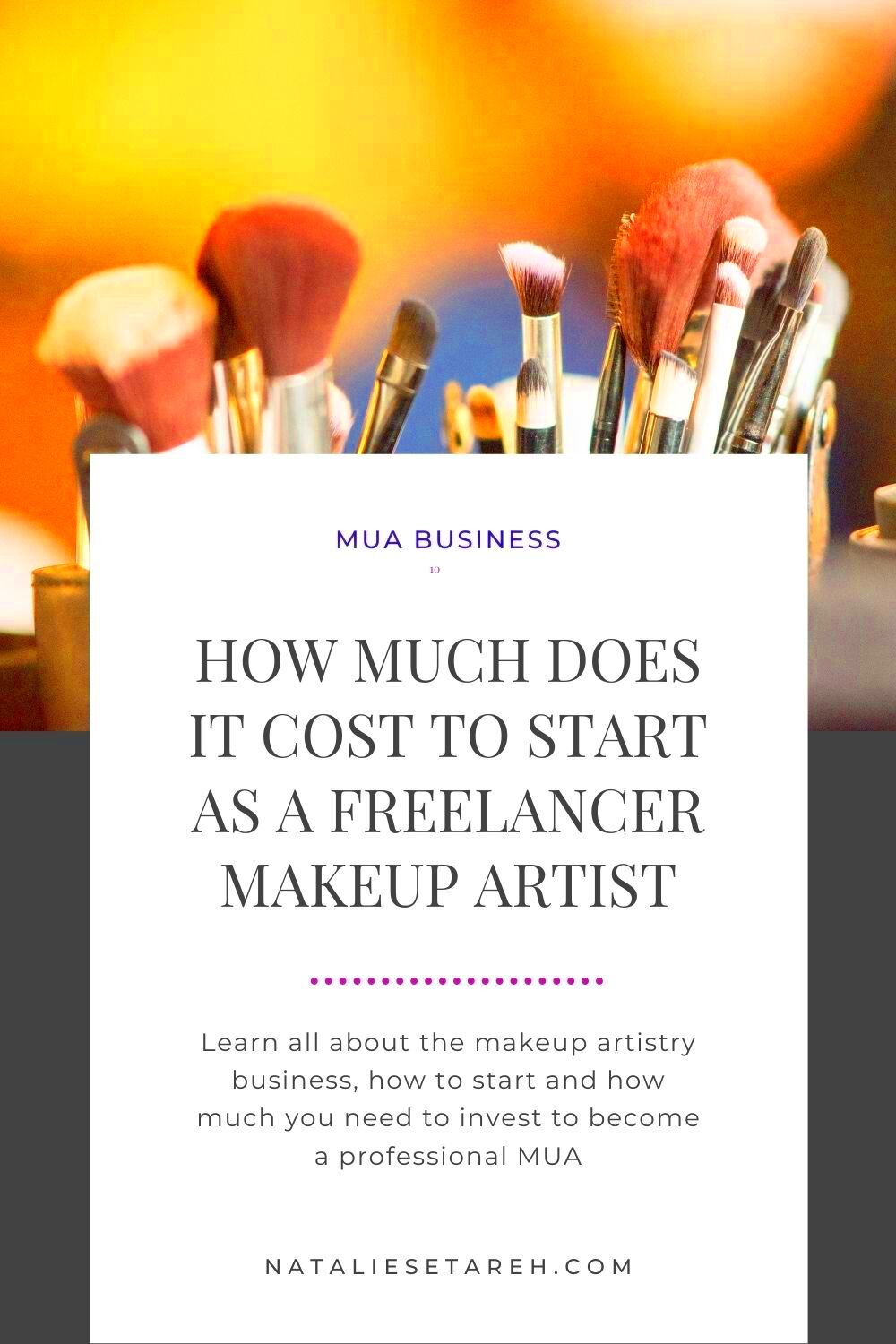When I first ventured into the world of being a makeup artist my pricing was a bit chaotic. I had no clue what constituted a rate or an affordable one and I discovered through experience that it's crucial to strike that balance. The fees for freelance makeup artists can differ significantly depending on factors like expertise, talent and client preferences. If you're at the beginning of your career it may be tempting to set your prices but believe me you'll quickly come to understand that undervaluing yourself can have negative consequences.
Makeup is more than simply putting on products; it's about connecting with the individual in front of you and making them feel unique. Therefore it's crucial to appreciate your abilities and time appropriately.
Factors That Influence the Pricing

Determining the price for your services as a freelance makeup artist involves considering various factors. Here are a few important aspects to keep in mind.
- Experience: If you’ve been in the game for years, your pricing should reflect that. People are willing to pay more for someone with a proven track record.
- Specialization: Bridal makeup, editorial looks, or event-based makeup can each have their own pricing structure. Brides, for example, are often willing to pay a premium for their big day.
- Product Usage: High-end products cost more, and many clients understand that using quality makeup is part of the overall service.
- Time Involved: The complexity of the makeup look often determines how long it takes. A simple day look will be priced differently than a more detailed evening or bridal look.
- Client Expectations: Some clients expect a touch-up service throughout the day, especially for weddings or events. Naturally, this adds to your rate.
It's crucial to strike a balance among these aspects while not undervaluing yourself. Don't hesitate to modify your fees depending on the specific project at hand.
Also Read This: How to Make a Post on Fiverr
How Location Affects Makeup Artist Charges

One thing I realized when I began freelancing is the significance of location. In bustling cities such as Mumbai or Delhi you can command higher fees due to the cost of living being steeper and the demand being stronger. Conversely in smaller towns or countryside regions you may need to adjust your prices downward since people tend to be less willing to spend on makeup services.
However the point is this even if you charge less in certain aspect it doesn't diminish the value of your skills. It's really about adapting to the market and the preferences of your clients. When I relocated from a city to a smaller town I had to adjust my pricing. I discovered that bundling services into packages was effective in those areas. It allowed me to offset the lower individual rates by offering clients added value.
Heres a rough idea of how rates could differ.
| City | Average Rate per Session |
|---|---|
| Mumbai | ₹5,000 - ₹10,000 |
| Bangalore | ₹4,000 - ₹8,000 |
| Small Towns | ₹2,000 - ₹5,000 |
Adapting your pricing to align with the local market isn't just a wise move, it's essential for maintaining the viability of your business across various regions.
Also Read This: How to Change Your Fiverr Bank Account
Average Earnings of Freelance Makeup Artists

When I embarked on my journey as a makeup artist freelancer I had my doubts about how much I could genuinely earn. Initially I viewed it as a gig but gradually it dawned on me that there was an opportunity to make a good income, especially if you strategize wisely. The typical earnings of freelance makeup artists in India differ based on the type of work you undertake your location and your level of expertise. And trust me the possibilities are endless if you’re ready to put in the hard work.
On average a self employed makeup artist can make around ₹20,000 to ₹1,00,000 monthly. Let me explain this in more detail.
- Beginner Artists: You might start at around ₹2,000 to ₹5,000 per client for smaller events like birthdays or family functions.
- Experienced Artists: With some experience and a good portfolio, you can easily charge ₹10,000 to ₹20,000 per client, especially for weddings and high-profile events.
- High-End Artists: Top-tier makeup artists who cater to celebrities or luxury weddings often make ₹50,000 or more per session.
Staying consistent is crucial. Its not only about scoring major opportunities but also keeping a steady flow of regular clients. Dont overlook the significance of smaller tasks as they accumulate over time. Moreover they contribute to enhancing your portfolio and nurturing loyal customers who will refer you to others.
Also Read This: What is Payment Being Cleared in Fiverr?
Balancing Costs and Skills as a Freelance Makeup Artist
One of the hardest lessons I faced as a freelancer was mastering the balance between my expenses and my expertise. The beauty industry is cutthroat and while it’s tempting to splurge on high end products and tools it’s crucial to stay mindful of your budget. When you’re starting out you don’t need to have every single product available. Trust me clients prioritize your application skills over the use of a luxury brand.
I used to go overboard with luxury items thinking it would wow my clients but it actually cut into my profits. With time I learned to strike a balance. Here’s a helpful tip that proved effective for me.
- Quality Over Quantity: Invest in good-quality foundations, concealers, and brushes. These are your bread and butter, and you want them to last.
- Budget-Friendly Alternatives: For eyeshadows, blushes, and other products, you can find plenty of affordable options that work just as well as the high-end brands.
- Know When to Splurge: Save the luxury products for bridal or high-profile clients who are willing to pay for that extra touch of glamour.
Keeping your expenses in check is key to running a successful freelance venture. No matter what tools you employ your talent and ingenuity will always stand out.
Also Read This: Can You Cancel a Fiverr Account?
Setting Your Rates as a Beginner Makeup Artist
Ah, the challenge of establishing rates. It’s a hurdle I faced in the beginning and if you’re just starting out it’s likely something you’re pondering as well. You want to avoid undervaluing your work by charging too little but you also don’t want to intimidate potential clients with prices. Believe me, I’ve been in that position before. The key is to begin with competitive rates that align with your skill level while still allowing for future advancement.
In the early days of my career, I spent time looking into the rates of fellow makeup artists around me. Here’s what I discovered,
- Research Local Rates: Take a look at what makeup artists in your region are charging. It gives you a baseline to work from.
- Offer Introductory Prices: In the beginning, offering slightly lower rates can help you build your portfolio and attract clients. Just don’t go too low—you don’t want to set unrealistic expectations.
- Consider Package Deals: Offer packages for events like weddings, where you can do makeup for the bride, bridesmaids, and family members. It’s a win-win for both you and the client.
In the early days I recall giving friends and family special rates to kickstart my journey. It was a way for me to build up my skills and self assurance and soon enough I started getting referrals through word of mouth. As you hone your craft dont hesitate to raise your prices. Clients are willing to invest in quality and your time and expertise are valuable.
Also Read This: Mastering the Art of Image Cutouts in Canva: A Step-by-Step Guide
Frequently Asked Questions About Makeup Artist Rates
When I began my freelancing journey I was inundated with inquiries from clients regarding my pricing and I can imagine that if you’re just starting out in freelancing you’ve faced your fair share of questions too. Clients are curious about what exactly they’re paying for and being open about it is crucial in this industry. Here are some of the questions I often come across along with my responses drawn from my own experiences.
1. Why do makeup artist rates vary so much?
The answer is that it varies based on different aspects such as expertise, place, service type and the products used. For example bridal makeup tends to be pricier than regular makeup due to its complexities and higher standards. When I began doing bridal makeup I discovered how much the planning, trial sessions and the actual day contribute to the overall expense.
2. Do makeup artists charge extra for travel?
Certainly, travel costs are typically included, particularly if the client is located away from the artists home base. I’ve had clients ask for makeup services in various cities and naturally the travel expenses needed to be taken care of. It’s important to establish this, from the beginning to prevent any misunderstandings down the line.
3. How do I know if I'm being charged fairly?
One effective method to assess an artists skills is by reviewing their body of work and examining feedback or endorsements. When I embarked on my journey I offered prices while maintaining the quality of my services. Clients recognized the worth of my creations and gradually I gained the confidence to raise my rates.
4. Can I negotiate makeup artist rates?
From what I've seen there's flexibility to discuss prices, particularly when it comes to making reservations for a gathering or an event spanning multiple days. That being said it's important to remember that makeup artists just like any other professionals have expenses related to their supplies and time. I've come to realize that it's more effective to communicate the worth of your service instead of constantly lowering your rates.
Final Thoughts on Makeup Artist Pricing and Earnings
Determining rates as a freelance makeup artist involves a blend of creativity and strategy and it changes with your level of experience. Finding the right balance between recognizing your worth and not pricing yourself out of the market is crucial. Throughout my journey I've discovered how to charge fairly while ensuring that my clients perceive genuine value in their investment. As long as you remain dedicated to honing your skills and continue learning your pricing will organically evolve to mirror your expanding proficiency.




